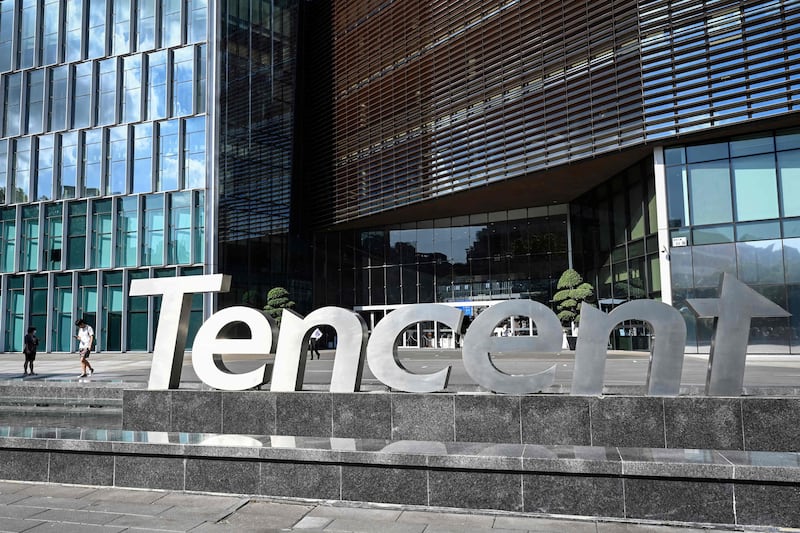China’s Tencent Holdings, the world's biggest gaming company, has unveiled its artificial intelligence-driven large language model.
It is now open to enterprises in China for testing and building apps through its cloud platform, the company said.
The language model named “Hunyuan” supports the creation of images, copywriting, text recognition and customer service, the Hong Kong-listed company said on Thursday. It will be instrumental in industries like finance, public services, social media, e-commerce, transportation and games, it added.
“In launching Hunyuan and making it available to domestic enterprises, Tencent has opted for an approach that balances the exciting performance of consumer-facing, large-model AI powered chatbots with the pragmatic need for the business community to increase operational efficiencies, reduce costs, protect privacy as well as proprietary data,” said Dowson Tong, senior executive vice president of Tencent.
The new language model has a reliable task execution ability and can generate a thousand-word long text in one go, Tencent said in a separate blog post on its website.
Large language models are types of generative AI that can imitate human intelligence. They can distinguish, review, translate, forecast and produce new content – text, audio or visual – using large data sets.
The global generative AI market is forecast to reach $188.62 billion by 2032, growing at an annual rate of more than 36 per cent, from $8.65 billion last year, according to Brainy Insights.
AI will be the common theme in the top 10 technology trends in the next few years, and these are expected to accelerate breakthroughs across major economic sectors as well as society, Alibaba Damo Academy, the global research arm of China's Alibaba Group, said in a report last year.
Hunyuan has also been connected to 50 of Tencent’s own products, including Tencent Cloud, Tencent advertising, Tencent Games, Tencent FinTech, Tencent Meeting, Tencent Docs, Weixin search and QQ browser.
Tencent Meeting now features a Hunyuan-powered AI assistant and can perform complex tasks such as generating relevant meeting minutes by processing natural language instructions and prompts from users.
Hunyuan has more than 100 billion parameters and was trained with more than two trillion tokens, two metrics often used to measure the power of AI models.
AI has long been used by businesses and enterprises to streamline their operations and help make workloads more efficient.
Its popularity soared with the introduction of generative AI, which rose to prominence thanks to ChatGPT, the language model made by Microsoft-backed OpenAI capable of producing various kinds of data, including audio, code, images, text, simulations, 3D objects and videos.
That triggered a race between Microsoft and Google, which released Bard. It also led to X, formerly Twitter, chief executive Elon Musk announcing xAI, prompted Apple to improve its Siri digital assistant and, overall, created a new battlefront in the tech sector.
Hunyuan's debut comes after several tech firms including Baidu, Google and Meta recently unveiled their own AI models.
Last month, Facebook’s parent company Meta launched an artificial intelligence-driven large language model that can use text prompts to generate and discuss code.
China's Baidu, the country's search engine equivalent of Google, also announced recently it had received regulatory approval to release its ChatGPT-like Ernie AI bot in the country.
In April, Google rolled out new generative AI tools to boost the cyber security framework of various industries.
Using large language models, the new AI capabilities that are infused in Google’s Chronicle security operations will expedite threat detection, the investigation process and the initial response while simplifying the complex data analysis and security engineering processes, it said.







